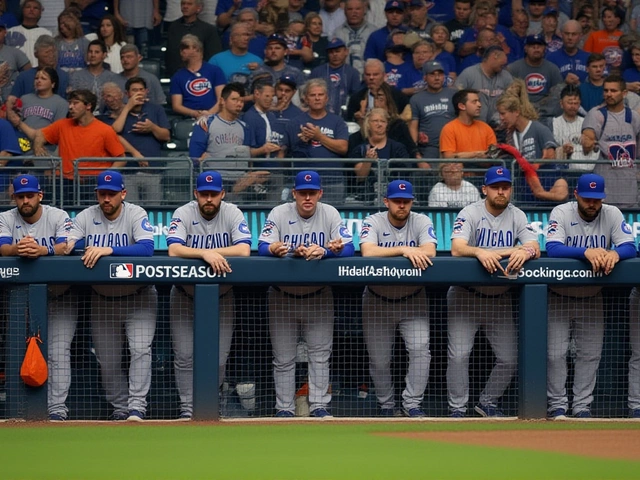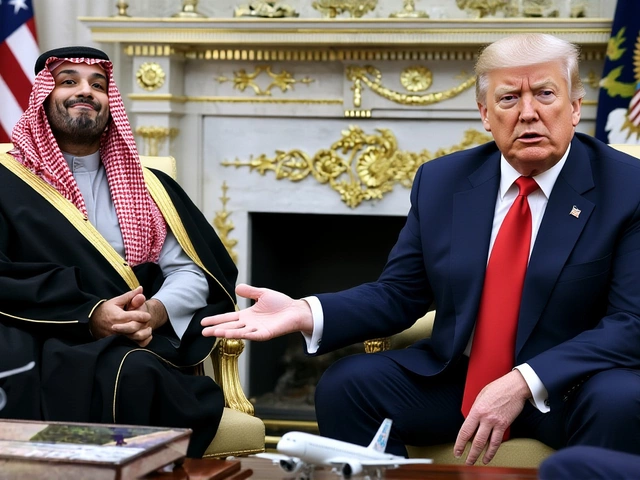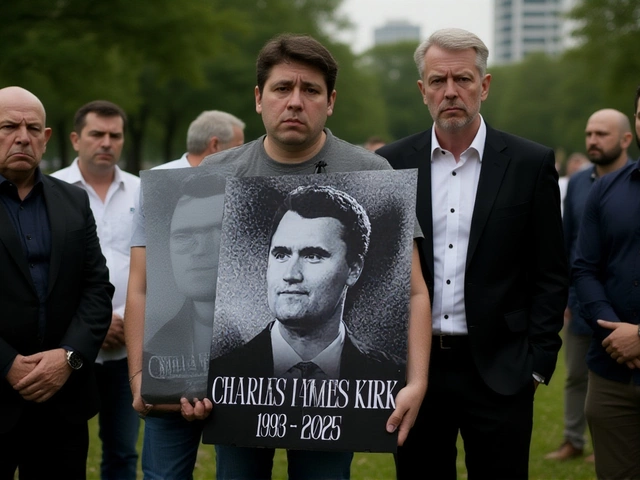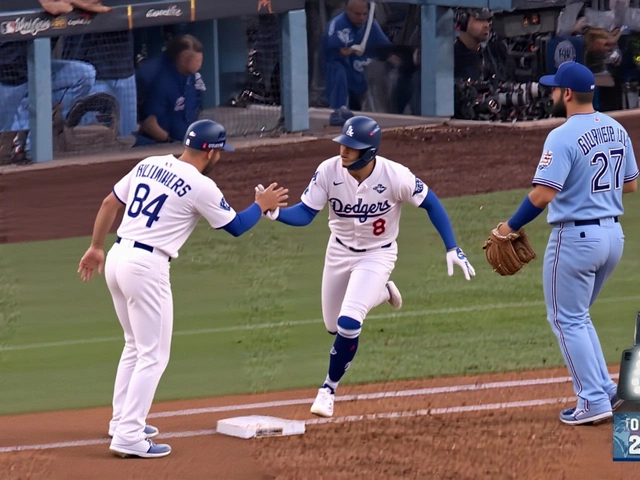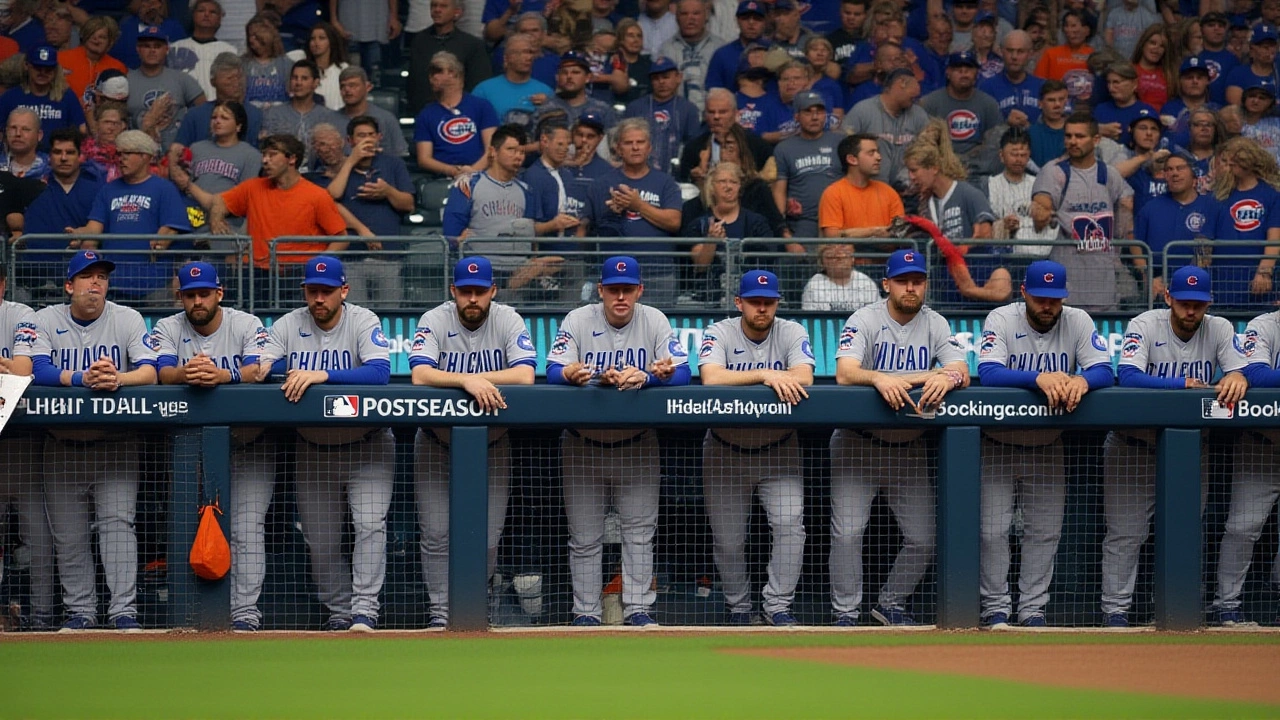
When Seiya Suzuki, outfielder for Chicago Cubs launched a three‑run homer in the top of the first, the crowd at American Family Field thought they were in for a quick ride. Minutes later, Corbin Carroll Vaughn, right‑hander for the Milwaukee Brewers answered with his own three‑run blast, writing the first‑inning page of playoff history. The contest, held on October 6, 2025, gave the Brewers a 7‑3 win and a 2‑0 lead in the National League Division Series, leaving David Ross, Cubs manager staring at the brink of elimination. Meanwhile, Pat Murphy, Brewers manager celebrated a flawless night from the dugout, extending his postseason record to four straight victories.
Historic First‑Inning Fireworks
The opening frame felt like a fireworks show. Suzuki’s three‑run shot off Brewers starter Jared Koenig sent the Cubs ahead 3‑0, but Vaughn answered on the very next plate appearance, turning the tide to 4‑3 before the inning closed. It was the first time in MLB postseason lore that opposing teams each launched a three‑run homer in the first inning of the same game. The rarity of the moment was underscored by the fact that the Brewers had only hit one three‑run homer all season.
Fans at American Family Field, a venue that seats 43,127, were treated to a chorus of cheers and gasps that echoed from the bleachers to the concourse. The stadium’s bright lights reflected off the polished concrete as the two homers reverberated through the night, making it clear why the NLDS can feel like a different sport entirely.
Brewers' Bullpen Dominance
After Vaughn’s heroics, the Brewers leaned on a deep bullpen that has become the envy of the league. Reliever Porter Hodge fielded a gritty chopper in the fifth, delivering an underhand feed to second‑baseman Nico Hoerner, who tagged the runner just in time. That play kept the inning from spiraling further and preserved the narrow lead.
Later, left‑hander Jared Koenig re‑entered in the seventh, retiring six straight batters, including a solo home run off Hoerner in Game 1 that had haunted Milwaukee fans. Closing out the night, Devin Williams and setup man Abner Uribe combined for 15 consecutive outs, with Uribe striking out the side in the ninth. Their precision forced the Cubs to a forced‑error rally they simply could not overturn.
Cubs' Defensive Woes
Chicago’s error count skyrocketed when shortstop Dansby Swanson, age 31, mishandled a routine grounder in the fifth, extending a rally that had already opened the floodgates in Game 1. The misplay allowed runners to advance and set up a two‑out, two‑run situation that the Brewers ultimately nixed, but the damage to team morale was evident.
It’s a sharp contrast to the Cubs’ regular‑season performance, where they logged just 78 errors—the third‑fewest in MLB. The sudden spike under playoff pressure sparked a chatter among analysts that the Cubs might be over‑thinking every throw, a sentiment echoed by Marquee Sports Network’s Jon Sciambi, who quipped, “The Milwaukee Magic keeps rolling.”
Beyond Swanson’s miscue, the Cubs managed only two additional hits after the opening burst, pushing their series batting average to a woeful .187. Veteran slugger Michael Busch tried to reignite the offense with a solo homer in Game 1, but his efforts were stifled by a disciplined Brewers staff.
Implications for the Series
The 2‑0 lead puts the Brewers on the cusp of a series clinch, a scenario that would propel them toward a possible NLCS showdown with either the Los Angeles Dodgers or the San Diego Padres. For the Cubs, the path forward is a steep climb: they must win three straight games at Wrigley Field, a historic venue that has seen countless comeback miracles.
Pat Murphy’s managerial résumé just grew richer. Since taking over in 2024, he has posted a perfect 4‑0 record in postseason games, a streak that has instantly turned Milwaukee’s clubhouse into a “must‑win” culture. Meanwhile, David Ross faces a growing chorus of criticism; his decisions after the first inning—especially the handling of the bullpen—have been scrutinized by both fans and former players.
Statistically, the Brewers’ turnaround from a 78‑84 record in 2024 to a 95‑67 division‑winning season in 2025 is one of the most dramatic in recent MLB history. Their surge is reflected in a +28 run differential this year, the best in the National League, underscoring why their postseason run feels inevitable.
Looking Ahead to Game 3
Game 3 shifts to Wrigley Field on October 8, 2025. The Cubs will count on home‑field advantage and a raucous crowd to fuel a potential comeback. Analysts predict a pitching duel, with the Brewers likely to start a veteran arm while the Cubs may lean on their younger talent.
If the Brewers clinch the series, they will head to the NLCS on October 11, 2025, at Dodger Stadium, where a showdown with a West Coast powerhouse looms. For Chicago, the season will end unless they can rewrite the script in just three games—a narrative that has made baseball’s postseason so unforgettable.
Frequently Asked Questions
How does the Brewers' 2‑0 lead affect the Cubs' chances?
Being down 0‑2 in a best‑of‑five series forces Chicago to win three straight, a feat achieved in only 12% of NLDS matchups over the past two decades. The pressure amplifies, and any additional error could end the Cubs' season.
What made the first inning historic?
For the first time ever in MLB postseason history, both teams hit three‑run homers in the opening inning of the same game. Suzuki’s shot gave Chicago an early lead; Vaughn’s reply flipped the script, setting a new benchmark for early‑game drama.
Which Brewers players have been most pivotal this postseason?
Corbin Carroll Vaughn’s clutch homer and Jared Koenig’s dominant relief work have stood out, while Devin Williams and Abner Uribe have combined for 15 straight outs, showcasing the depth that has defined Milwaukee’s playoff run.
What are the odds the Cubs can rally at Wrigley Field?
Wrigley’s wind‑influenced environment can swing games dramatically. Historical data shows home teams win roughly 55% of NLDS games there, but overcoming a 2‑0 deficit remains a tall order—experts give the Cubs roughly a one‑in‑four chance.
What does this series mean for Pat Murphy’s legacy?
An NLCS appearance would cement Murphy’s reputation as a turnaround specialist, adding a postseason pedigree to his resume. Four straight wins in the postseason already places him among the most effective managers in recent Brewers history.
